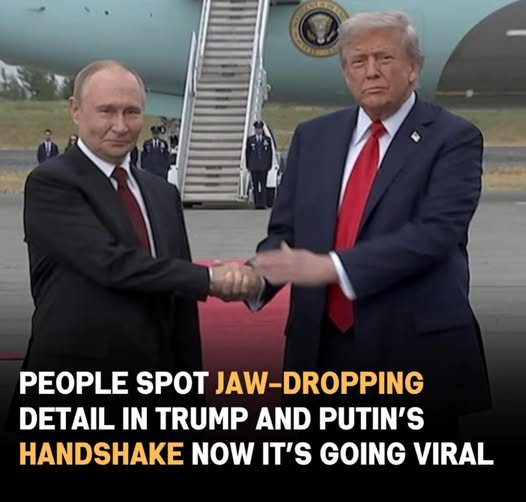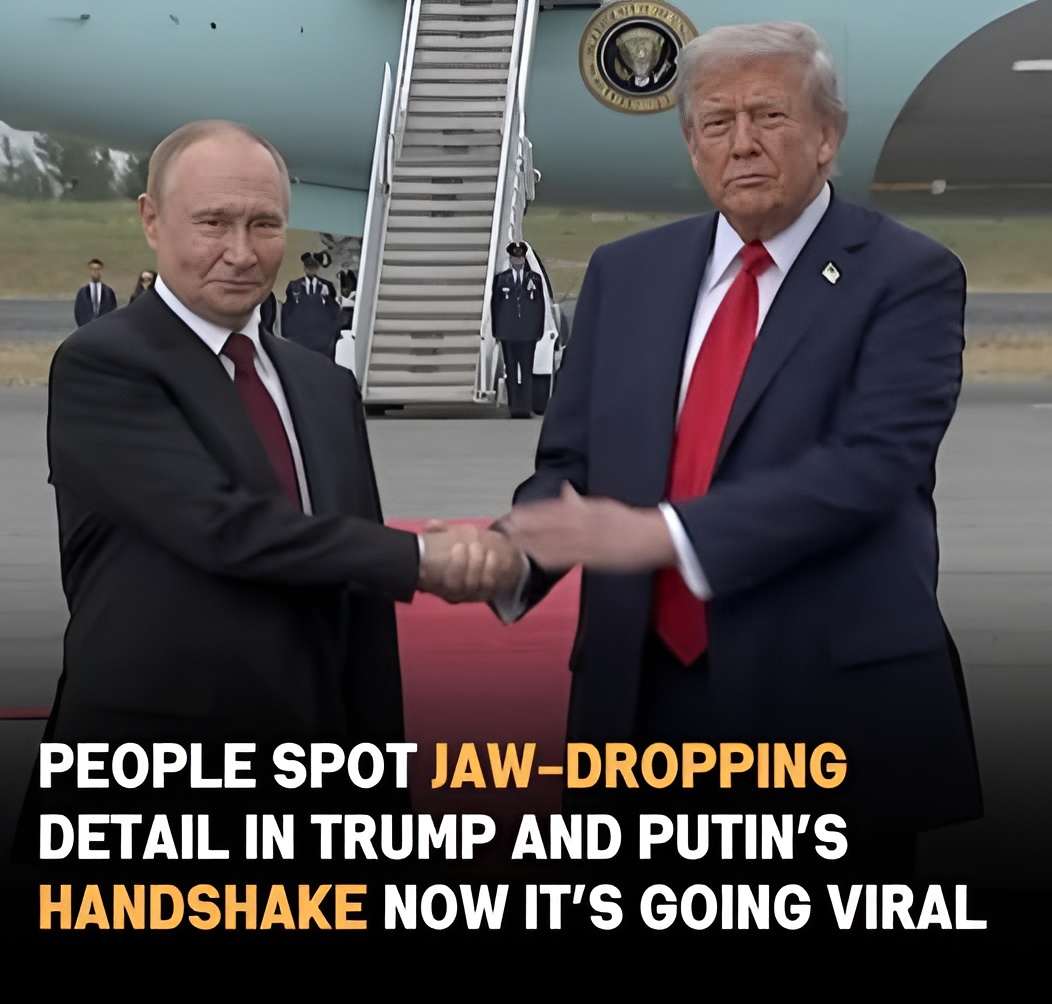
In the tense arena of international diplomacy, nonverbal cues often reveal more than scripted dialogue. The handshake between President Donald Trump and President Vladimir Putin at a summit in Alaska became a viral moment, sparking global debate. Trump’s signature “yank” handshake—a sudden, forceful pull—was interpreted by many as a power move, reflecting deeper psychological and diplomatic dynamics between the two leaders.
Trump has long used this handshake style to assert dominance in political encounters, leveraging physical contact to establish psychological advantage. His technique is intended to throw opponents off balance, both physically and mentally, from the outset. While this approach may appeal to supporters who admire assertive leadership, its effectiveness in high-stakes diplomacy remains controversial.
Putin, known for his controlled image and physical confidence, was briefly pulled off balance but quickly regained his composure. His calm recovery highlighted his experience and discipline, suggesting prior knowledge of Trump’s tactics. Rather than being dominated, his response may have subtly undercut Trump’s attempt at asserting control.
Social media reactions to the handshake were deeply polarized. Trump’s base saw it as a symbol of strength, while critics argued it was an inappropriate display during sensitive negotiations. Generational and cultural differences also influenced interpretation, with younger viewers engaging through memes and older audiences focusing on diplomatic norms.
The summit occurred amid growing frustration over the ongoing war in Ukraine. Trump’s earlier promises of quick conflict resolution had not materialized, and economic incentives like a minerals deal were offered alongside vague threats of sanctions. Yet, Putin’s resistance to external pressure complicated any diplomatic progress.
Ultimately, the handshake illustrates how personal gestures in diplomacy can shape public perception and international strategy. While symbolic power plays grab attention, lasting diplomatic success depends on policy outcomes, trust-building, and meaningful cooperation between leaders.
